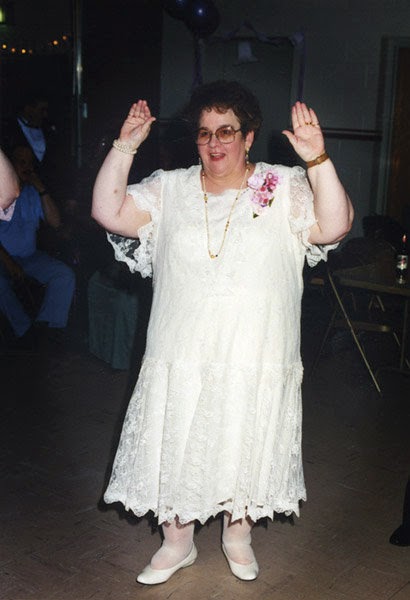Doing Lines
A second post about line memorization.
So, how do I get all those words that aren't my own into my head? Like so many things about acting (and life in general) I've been surprised by how physical the process of learning lines is. I can't just stare at the lines until I magically absorb them, even if they are highlighted in a super pretty girly color. I have to read them out loud, and say them out loud, and eventually say them out loud while I'm doing something (like walking or doing dishes or curling my hair).
One time I mentioned to my friends Wanda and Sandy that people gave me strange looks when I sat in my car in the Target parking lot "doing lines." As you can imagine, Wanda and Sandy gave me strange and somewhat pitying looks...was this a really lame cry for help? Eventually I realized that "doing lines" was an Amyism not used by the general public in the way I meant it. For me, "doing lines" meant I was sitting in my car saying my character's lines out loud. I was clearly embracing my inner Colleen, as my mom once told me and my friend Jenny when we were in high school that we should go out to the car and "get loaded."
Thanks to modern technology and smart phones, it's pretty easy to make recordings of a script and listen to it over and over to help with memorization. I learned this trick from Chad, and it's immensely helpful, especially when I have the chance to listen to my lines in the car. The trick is to record the script in short bits as neutrally as possible (or else you memorize a certain delivery style).
Before I had a smart phone, I had to rely on using my script and just covering up my lines. This is still helpful, because seeing the words seems to connect them with another part of my brain. Sometimes I also type (or even write) my lines, especially bigger chunks of lines that I'm struggling with. The typing method is very useful in situations where I need to look like I'm not trying to memorize lines and am actually paying attention to people around me (notice I did NOT use the word "work." No admission of anything here).
One revelation I will admit to is that Chad rarely runs lines with me, because he despises running lines. He has an amazing memory and can learn lines quickly by mostly just listening to his recordings of the scripts. The up side of this is that if I'm in a show that he's not, the show is fresh to him when he comes to see it. The downside is that I think having someone I could run lines with would be really helpful to me (hint, hint, any volunteers out there?)
One trick that helps me learn lines is trying to make associations with certain words, or between my line and the cue line. Often these connections are ludicrous and/or somewhat obscene. (I might have to do another post of examples). Which also reminds me of another important stage of the memorization and rehearsal process: saying and hopefully purging all those inappropriate things that pop into your heard. This is otherwise known as the material that would be in the "Midnight Show" or "That which would NOT play well in Scandia." (Sorry, inside joke for my Duck Soup Theater colleagues). A small current example from "Bird Icon": my character (Claire) tells her father that he took her summer job money to pay for "groceries and cigarettes." Well, I REALLY want to add "and WHORES." This stage can get a little out of control if Chad and I are in a show together...we had a really dirty version of "Our Town" that involved an illicit relationship between Emily and Miss Corcoran (that whore).
While monologues are obviously challenging to memorize, back and forth dialogue can be even trickier. With dialogue you often have to know not only your own lines, but others as well, so you know right when to come in and can keep things flowing. And you can't just know your cues, because it turns out other people make mistakes, too, so you have to know how to keep the conversation going even if every line isn't said perfectly. Having just a few lines in a multi-character scene can be the dramatic equivalent of triangle playing: easy, until you zone out and lose you place and screw up and bring everyone down with you.
And just how perfectly do lines need to be said? Some actors and directors belong to the school of thought that any paraphrasing, substitution. or transposing is a mortal sin that threatens the integrity of the text. I certainly don't want to be disrespectful to the playwright, and I get that authors choose specific words for a reason, but I also have to live in real world (or at least my real world). I'm going to mess things up, but, at the end of the day, if I convey the author's meaning and create a character that feels real, I'm satisfied.
So, how do I get all those words that aren't my own into my head? Like so many things about acting (and life in general) I've been surprised by how physical the process of learning lines is. I can't just stare at the lines until I magically absorb them, even if they are highlighted in a super pretty girly color. I have to read them out loud, and say them out loud, and eventually say them out loud while I'm doing something (like walking or doing dishes or curling my hair).
One time I mentioned to my friends Wanda and Sandy that people gave me strange looks when I sat in my car in the Target parking lot "doing lines." As you can imagine, Wanda and Sandy gave me strange and somewhat pitying looks...was this a really lame cry for help? Eventually I realized that "doing lines" was an Amyism not used by the general public in the way I meant it. For me, "doing lines" meant I was sitting in my car saying my character's lines out loud. I was clearly embracing my inner Colleen, as my mom once told me and my friend Jenny when we were in high school that we should go out to the car and "get loaded."
Thanks to modern technology and smart phones, it's pretty easy to make recordings of a script and listen to it over and over to help with memorization. I learned this trick from Chad, and it's immensely helpful, especially when I have the chance to listen to my lines in the car. The trick is to record the script in short bits as neutrally as possible (or else you memorize a certain delivery style).
 |
| "My lines are up there somewhere..." (from True Love, Spring 2012) |
Before I had a smart phone, I had to rely on using my script and just covering up my lines. This is still helpful, because seeing the words seems to connect them with another part of my brain. Sometimes I also type (or even write) my lines, especially bigger chunks of lines that I'm struggling with. The typing method is very useful in situations where I need to look like I'm not trying to memorize lines and am actually paying attention to people around me (notice I did NOT use the word "work." No admission of anything here).
One revelation I will admit to is that Chad rarely runs lines with me, because he despises running lines. He has an amazing memory and can learn lines quickly by mostly just listening to his recordings of the scripts. The up side of this is that if I'm in a show that he's not, the show is fresh to him when he comes to see it. The downside is that I think having someone I could run lines with would be really helpful to me (hint, hint, any volunteers out there?)
One trick that helps me learn lines is trying to make associations with certain words, or between my line and the cue line. Often these connections are ludicrous and/or somewhat obscene. (I might have to do another post of examples). Which also reminds me of another important stage of the memorization and rehearsal process: saying and hopefully purging all those inappropriate things that pop into your heard. This is otherwise known as the material that would be in the "Midnight Show" or "That which would NOT play well in Scandia." (Sorry, inside joke for my Duck Soup Theater colleagues). A small current example from "Bird Icon": my character (Claire) tells her father that he took her summer job money to pay for "groceries and cigarettes." Well, I REALLY want to add "and WHORES." This stage can get a little out of control if Chad and I are in a show together...we had a really dirty version of "Our Town" that involved an illicit relationship between Emily and Miss Corcoran (that whore).
While monologues are obviously challenging to memorize, back and forth dialogue can be even trickier. With dialogue you often have to know not only your own lines, but others as well, so you know right when to come in and can keep things flowing. And you can't just know your cues, because it turns out other people make mistakes, too, so you have to know how to keep the conversation going even if every line isn't said perfectly. Having just a few lines in a multi-character scene can be the dramatic equivalent of triangle playing: easy, until you zone out and lose you place and screw up and bring everyone down with you.
And just how perfectly do lines need to be said? Some actors and directors belong to the school of thought that any paraphrasing, substitution. or transposing is a mortal sin that threatens the integrity of the text. I certainly don't want to be disrespectful to the playwright, and I get that authors choose specific words for a reason, but I also have to live in real world (or at least my real world). I'm going to mess things up, but, at the end of the day, if I convey the author's meaning and create a character that feels real, I'm satisfied.



Comments
Post a Comment